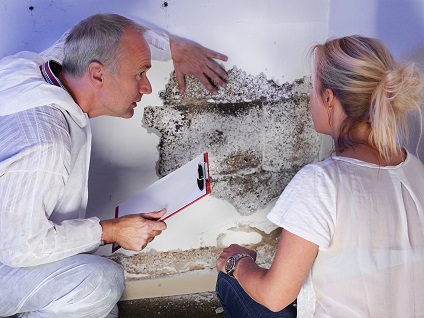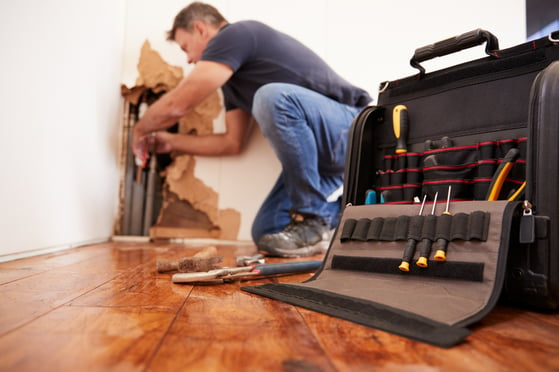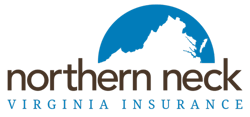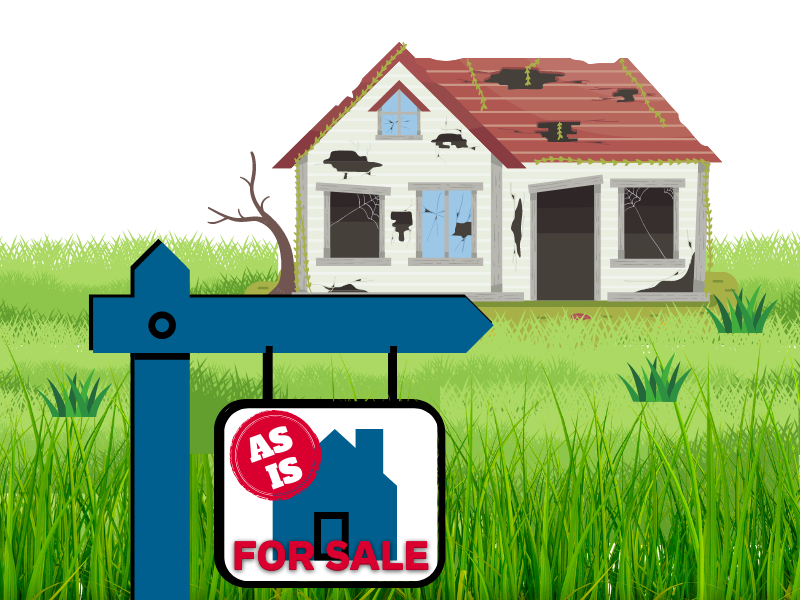
The Virginia post-pandemic real estate market has many buyers but few houses, thanks to historically low-interest rates. It's not only driving home prices up, but it's also creating a frenzied market of quick sales and crazy deals. Sellers are getting multiple offers above the asking price. Should you consider buying a house as is? There's now a new trend of foregoing a home inspection process to compete with other buyers. What better time to unload a house full of problems? We're raising the red flags about this potentially costly bargaining chip.
How a Home Inspection Works
A home inspection is an essential part of the home buying process. It's also required by HUD if you're financing the home purchase with an FHA loan. The inspection usually serves as a contingency in the sales contract. In other words, if the inspection identifies issues with the home, you can renegotiate the terms of the sale or terminate the contract and walk away from the deal.

During the contract process, you hire an independent inspector to visit the home within 10 days. Plan on spending between $300 and $450, and don't skimp. When the home inspection is completed, repairs and recommendations are then documented and presented to the buyer. Once reviewed, the buyer can determine if there are any "deal breakers" or if they want to negotiate the cost of repairs with the buyer. Some sellers opt to repair the issues themselves, while others may allow the new owner to do the repairs after the sale. As a buyer, if you exercise your right to walk away from a home due to a significant issue or the seller will not negotiate a repair allowance, you can get your earnest money back.
Waiving your home inspection
Virginia is a "buyer beware" or caveat emptor state. Under the Virginia Residential Property Disclosure Act, the seller must provide a disclosure that they do not make any representations about certain conditions related to the property. That means real-estate sellers are not required to fully disclose every issue with a home. While a seller can not deliberately conceal defects, the buyer is required due diligence before purchasing a home. There may be problems the seller is not aware of, and it might be difficult to prove prior knowledge of defects. Once you sign your disclosure, the seller is protected from defects that are later discovered.
If you waive your right to a home inspection on a home purchase, you are not properly investigating the home. You could be purchasing one of the biggest financial investments of your life blindly with a slew of expensive problems and endless repair bills.
Here are a few examples:
- water/flood damage
- mold problems
- a bad roof
- damaged roof shingles
- a dangerous deck
- termite damage
- chimney cracks
- electrical problems
- an inefficient HVAC system
- septic drainage issues
Insurance implications
Many of these problems can be due to neglect or normal home maintenance issues not covered by homeowners insurance. Take it from us! We've seen some scary home inspections in our work of protecting Virginia homes and property. Imagine your insurance company uncovering an exclusion from coverage for a problematic and costly issue after you've signed off on the home disclosure.
Insurance carriers may allow an appraisal to suffice for underwriting your new home's coverage, but it is entirely at their discretion. If the home is older, carriers will most likely require their own inspection before insuring it. This 4-point home insurance inspection and is much less comprehensive than a buyer's home inspection. It usually includes a visual inspection of the roof, plumbing systems, electrical systems, and heating and cooling systems.
If the home fails a 4-point home insurance inspection and you are required to correct issues to qualify for insurance coverage, there are other types of insurance you can buy, such as builder's risk insurance or vacant property insurance. This is appropriate while a renovation is underway and tends to run higher than standard home insurance rates.
There are smart ways to handle a home inspection in a seller's market. Ultimately, you should be prepared to walk away if the home requires significant work unless you have the budget. Keep in mind that the cost of repairs has increased significantly during the pandemic due to interruptions in production.

Before you waive your home inspection, know your options, don't be afraid to ask the seller for reasonable requests, and know when it's smart to move on. The right opportunity will come along. It's way better than a dream home that turns into a money pit full of regrets and endless repair bills.
Learn more about Virginia Home Insurance




